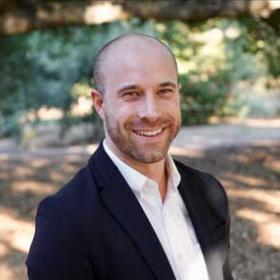
Berthold Beitz, 1913-2013
Berthold Beitz, who served as the EastWest Institute’s chairman of the board in the mid-1980s, died on July 30 at the age of 99. “EWI has lost a great pioneer, friend and leader with the passing of Dr. Bertold Beitz,” EWI President John Mroz declared. “We are a stronger and better institution because of him.”
Tributes poured in from all over the world for Beitz, who not only headed Thyseen Krupp, the steel conglomerate, during Germany’s postwar economic miracle but also saved hundreds of Jews and Poles from deportation to death camps during the World War II.
“With the death of Berthold Beitz, Germany has lost one of its most eminent and successful corporate personalities, who helped to shape the country in important ways,” Chancellor Angela Merkel said.
“Berthold Beitz was a light and a role model in the darkness of the murderous Nazi period,” Dieter Graumann, head of the Central Council of Jews in Germany, told the Juedische Allgemeine, Germany’s Jewish weekly.
Mroz offered this commentary about Beitz’s role at EWI and his contribution to lessening tensions between East and West in the Cold War days:
It is impossible to overstate the importance Berthold Beitz had in bridging the gap between the Soviet Union and the West during the most difficult days of the Cold War. Dr. Beitz, who served as EWI chairman during critical years in the 1980s, was a decisive and remarkable man. His visionary decision to create the Krupp Senior Fellows at EWI in the early 1980s enabled significant talent from Warsaw Pact and NATO nations to come and work together at the institute in New York for periods of one to two years.
The first ever publication on CBMs and CSBM—confidence and security building measures for the CSCE (now OSCE)—were written by these fellows. They often used pseudonyms because of the delicate nature of their pioneering work. Many of the EWI Krupp Senior Fellows later went on to become ministers and key leaders of their nations after the fall of communism in Central and Eastern Europe.
As chairman, Dr. Beitz was a mentor and was deeply engaged in the issues. He consistently encouraged us to take risks and push the ball further down the field. The respect with which he was held in Moscow and around the world translated into important openings for EWI in our first decade. Dr. Beitz was enormously proud when his grandson Robert Ziff became an active board member and served as chairman of the EWI executive committee. “It is the very kind of engagement to make a difference in this world that I expect every grandparent would like to see of future generations,” he noted.
EWI has lost a great pioneer, friend and leader with the passing of Dr. Bertold Beitz. We are a stronger and better institution because of him. Much of the remarkable success we had in helping facilitate Warsaw Pact-NATO relations in the 1980s was due to his interventions, engagement and vision.
We send to his wife Else, his three daughters and grandchildren our deep sympathy and our promise to continue to work hard in the best tradition that Dr. Beitz helped us establish at the EastWest Institute.
The obituary that ran in The New York Times can be found here.

